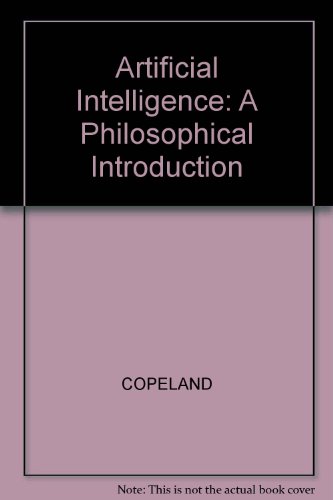Articoli correlati a Artificial Intelligence: A Philosophical Introduction

Sinossi
Presupposing no familiarity with the technical concepts of either philosophy or computing, this clear introduction reviews the progress made in AI since the inception of the field in 1956. Copeland goes on to analyse what those working in AI must achieve before they can claim to have built a thinking machine and appraises their prospects of succeeding. There are clear introducdtions to connectionism and to the language of thought hypothesis which weave together material from philosophy, artificial intelligence, and neuroscience. John Searle's recent attacks on AI and cognitive science are countered and close attention is given to foundational issues, including the nature of computation,Turing machines, the Church-Turing thesis, and the differences between classical symbol processing and parallel distributed processing. The book also explores the possibility of machines having freewill and consciousness and concludes with a discussion of in what sense the human brain may be a computer.
Le informazioni nella sezione "Riassunto" possono far riferimento a edizioni diverse di questo titolo.
Product Description
Book by Copeland Jack
Le informazioni nella sezione "Su questo libro" possono far riferimento a edizioni diverse di questo titolo.
(nessuna copia disponibile)
Cerca: Inserisci un desiderataNon riesci a trovare il libro che stai cercando? Continueremo a cercarlo per te. Se uno dei nostri librai lo aggiunge ad AbeBooks, ti invieremo una notifica!
Inserisci un desiderata
